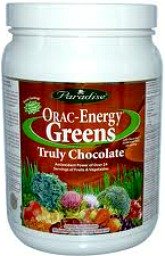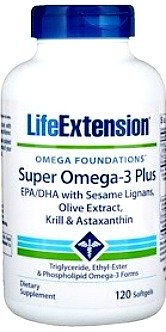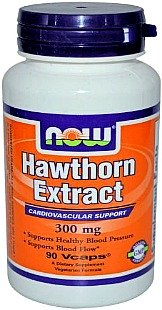Normal heart rate: What affects it and how to improve it
Normal heart rate is one of key values which is good indicator of your fitness level and heart muscle function.
Individuals that want to maximize their cardiovascular system function, preform high intensity cardio exercises which raises their heart rate to its max.
However, this type of training is not for everyone. You have to achieve at least average, healthy heart rate and work you way from there.
AVERAGE HEART RATE FOR YOUR AGE
Average, normal heart rate is the number of heartbeats per minute, measured at rest. However, age as well as level of fitness can increase or lower resting heart rate.
Average healthy heart rate for different age groups:
- From 60 to 71 for men and women 18-25 years old
- From 62 to 72 for men and women 26-35 years old
- From 64 to 73 for men and women 36–45 years old
- From 66 to 74 for men and women 46–55 years old
- From 68 to 76 for men and women 56–65 years old
- From 70 to 78 for men and women above 65 years of age
These numbers can be improved significantly with rest and exercise. For instance, some high levels athletes have resting heart rate of 30-40 beats per minute.
Note: Men are closer to the lower number of this chart since our heart muscle is bigger, due to higher amounts of anabolic and androgenic hormones.
HOW TO MEASURE HEART RATE
You can measure heart rate, even if you don't have heart rate monitor. The only thing you need is your index and middle finger, right measuring spot, sense of touch and a watch.
The measuring spots on the body are the ones where
an artery is close to the surface, so that the pulse can be felt. This includes the arteries in your neck and on the inside of your wrist.
In order to measure normal heart rate:
- Place index and middle finger on one of these points, with just enough force to fell the pulse.
- Count the beats for 30 seconds, then double the result to get the number of beats per minute.
You can also count the number of beats in 10 and 20 second intervals but then you have to multiply the result by six or three, to get the number of beats per minute.
WHAT REGULATES HEART RATE
There are two main ways which regulate heart rate. One is always on, while the other one turns on and off, depending on the situation.
Natural pacemaker of the heart muscle controls heart rate, most of the time. In case some of the heart's atrial nodes don't work properly anymore, then pacemaker device can be implanted to correct deviations in heart rate and rhythm, by correcting irregular electrical impulses of the natural cardiac pacemaker.
Autonomic nervous system regulates heart rate in certain situations, when the body requires more oxygen, energy and nutrient rich blood, for specific systems. Sympathetic nervous systems turns on in a case of fight or flight response, by increasing heart rate and stroke volume. When the threat is gone, parasympathetic nervous systems takes on, by slowing down the heart rate. Sympathetic and parasympathetic nervous systems are controlled by medulla oblongata which is part of the brainstem.
Note: If you really want to know how does the heart work and see the big picture, check this link.
WHAT AFFECTS HEART RATE
While these two control normal heart rate, there are several factors which can indirectly increase or lower resting heart rate, throught related mechanisms.
Stress hormones are part of the autonomic nervous system reaction which tells the body to secrete adrenaline in stressful situations. Adrenaline attaches to Beta-1 adrenergic receptors in the heart muscle, resulting in higher heart rate.
Thyroid hormones affect all the processes in the body. Overactive thyroid speeds them up, while underactive thyroid slows them down. Same rule applies for the speed of heart rate.
Deep breathing triggers relaxation response in the body, by reducing the activity of sympathetic nervous systems, while stimulating parasympathetic nervous system.
Beta blockers and relaxing herbs are used to achieve normal heart rate. Beta blockers block beta adrenergic receptors, while relaxing herbs help relax central nervous system.
Stimulants work completely opposite, when compared to relaxing herbs. Stimulants such as caffeine stimulate central nervous system, resulting in higher adrenaline levels and heart rate.
Emotions affect nervous system in both ways. Anger, fear and anxiety raise heart rate, while feelings of love, sadness, happiness as well as depression lower heart rate.
Dehydration decreases the amount of fluids in the blood which causes constriction of coronary arteries. At the same time, the heart begins to beat faster, in order to push the thicker blood through the blood vessels.
Temperature affects several processes inside the body. When body temperature goes up, blood vessels dilate which increases heart rate, in order to compensate for drop in blood pressure. On the other hand, decrease in temperature can lower heart rate but only to some degree. If the temperature gets too low, the body will actually increase heart rate, while trying to warm up.
Altitude decreases available oxygen levels, the more you go up. Since there is less oxygen, the heart has to pump the blood faster to transport more oxygenated blood to the cells. However, with time, the body can adapt thereby resulting in more or less normal heart rate. This phenomenon is used by athletes to increase their performance at sea level.
EXERCISE AND HEART RATE
Although regular exercise increases heart rate in short term, over time, the body adapts which results in lower resting heart rate and higher stroke volume in the long term.
In some cases, even the heart muscle increases in size which is known as athletes heart.
It becomes stronger and more efficient, by pumping more blood with fewer heartbeats. Oxygen uptake (VO2 max) also increases which is another benefit of exercise that helps lower normal heart rate.
In order to pick the right type of cardio exercise for you, click on the navbar link on the left. If you want to get the most from exercise, you may want to pay more attention on recovery heart rate which is mostly used by athletes for maximizing their performance.
- Heart Healthy Diet: Simple Tips and Guidelines
- Learn everything you need to know about heart healthy diet and find the right one for you. Implement few simple tips for immediate benefits.
- Heart Healthy Foods: How to Get the Most from Them
- Heart healthy foods can improve cardiovascular system function. Foods good for the heart are bursting with vitamins, minerals and rejuvenating phytochemicals.
- Herbs for the Heart and Cardiovascular System
- You have heard for hawthorn and garlic but there are few other herbs for the heart which can help in treating heart disease, naturally.
- The Best Heart Health Supplements
- Besides fish oil, there are several heart health supplements which can be useful. This includes Coenzyme Q10, Salicin, vitamin D3 and few others.
- Heart Healthy Spices
- Although there are many heart healthy spices out there, each of them can help prevent and treat heart disease in its own way, thanks to different types of flavonoids in these heart spices.
- Stress and Heart Disease: How are They Connected
- Stress and heart disease are closely related. In order to decrease the risk of heart problems, we have to learn how to handle the stress and treat its consequences, if we are unable to avoid it.
- Cardio Exercises for the Heart and Cardiovascular System
- Cardio exercises are vital part of natural heart disease treatment. However, which kind of heart exercise you should preform, varies from person to person.
- Good vs Bad Cholesterol: How to Improve Cholesterol Values
- Good vs bad cholesterol conflict is somewhat misunderstood. There is no good or bad cholesterol but only high or unbalanced cholesterol.
- Good Fats vs Bad Fats: Nutritional Facts and Guidelines
- What is the real truth when it comes to good fats vs bad fats? How much dietary fats should you consume daily and what are the best food sources of healthy fats?
- High Blood Pressure Remedies
- High blood pressure remedies range from tips and lifestyle modification to herbs and supplements. However, the method that works for someone else, may not work for you.
- Normal Heart Rate: How is Regulated and Influential Factors
- Normal heart rate varies from person to person. Although, age affects resting heart rate, there are many other factors that can raise or decrease heart rate.
- How to Lose Fat: Overlooked Tips for Weight Loss
- How to lose fat is surely one of the most intriguing questions for so many people. However, the answer is very simple. Eat healthy foods, perform fat burning exercises and take care of your hormones.
- Hormones and Heart Disease Connection
- Don't neglect hormones and heart disease connection. If you want to treat or prevent heart disease you have to balance your hormones.
- Heart Disease and Immune System Connection
- Heart disease and immune system connection is often overlooked, while trying to improve cardiovascular system function. However, there are several things you can do to change this.
- Dental Health Heart Disease Connection: Facts and Tips
- Dental health heart disease connection is one of three overlooked factors, along with hormones and immune system. However, with smart and effective approach we can change this.
- Causes of Heart Disease
- There are many causes of heart disease and factors that can increase or decrease your risk for developing heart related problems. Check how to turn the tide in your favour.
- Symptoms of Heart Disease
- There are few main symptoms of heart disease. Find out which are they, how to recognize them as well as my personal experience with some of them.
- Diagnosis of Heart Disease
- Accurate diagnosis of heart disease is the first step toward recovery. You can't start with treatment before you know what kind of disease you have, obviously.
- Treatment for Heart Disease: Medications and Surgeries
- Standard treatment for heart disease consists of surgeries, medications and devices. Which one is right for you, depends on your condition.
- Heart Disease Blog
- This is a blog about natural remedies, personal stories, helpful herbs and supplements, workout program as well as other tips and facts which may help people faced with heart disease.
- Contact Me
- Ask questions and leave comments about this site here.
- About the Author of Heart Health Guide
- About the author of Heart-health-guide.com website.
- Heart Health Guide Sitemap
- This is sitemap of Heart Health Guide.com. If you want to get better overview of informations on this website, you can get it here.
Copyright © - Heart Health Guide - All Rights Reserved.



